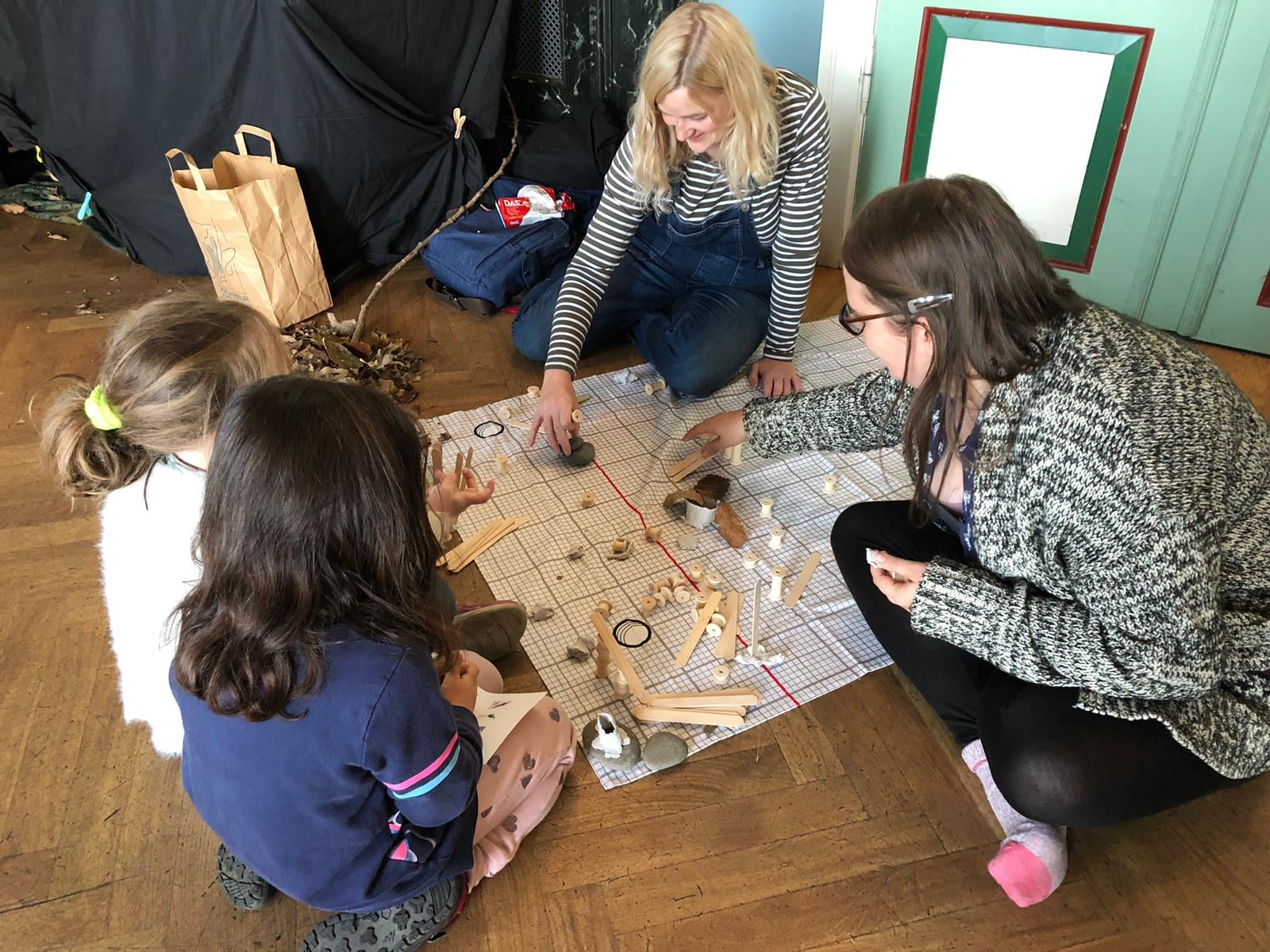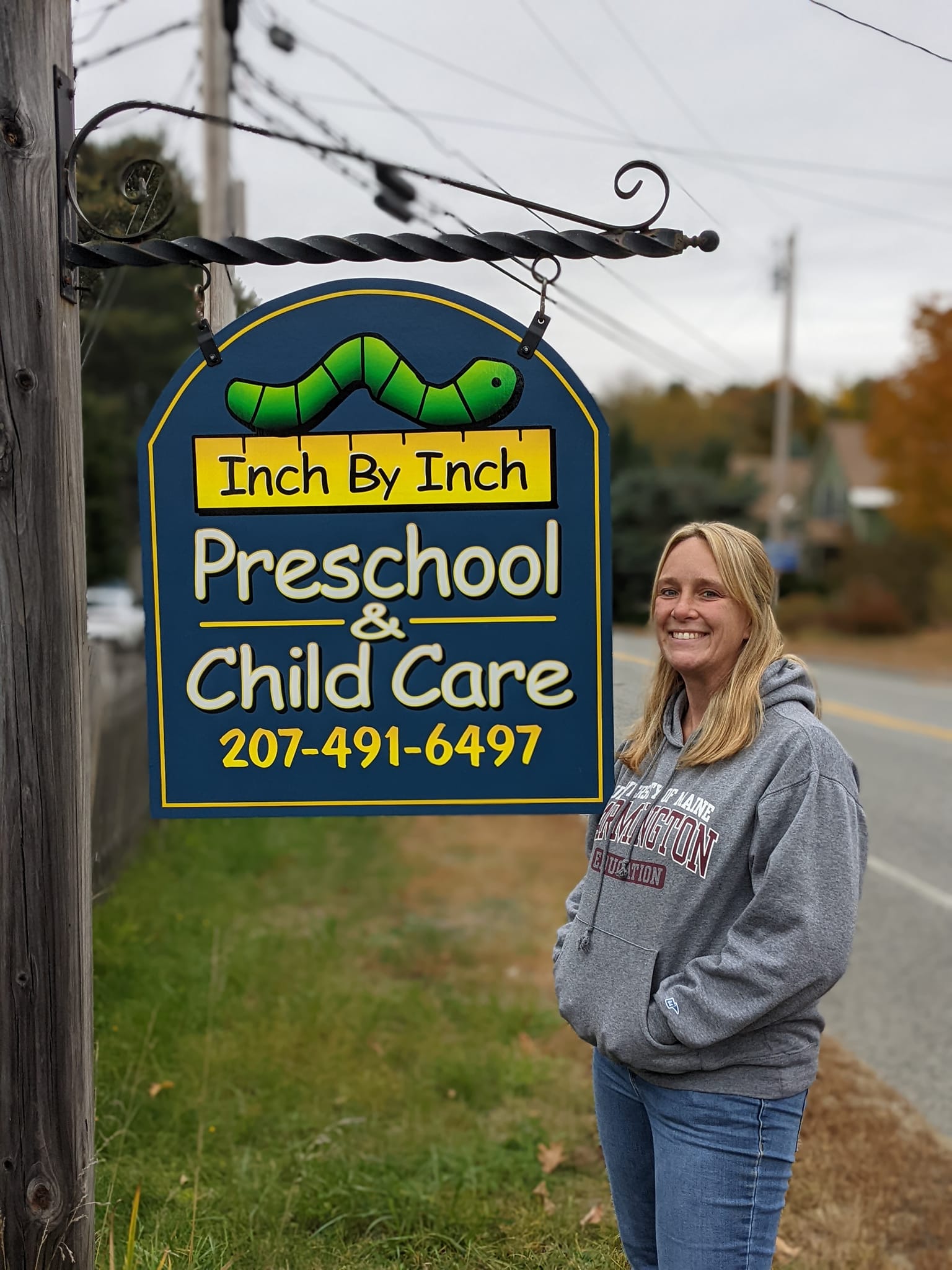
WILTON – Jessica Lewis knows how to play.
The owner and director of Inch by Inch Preschool has been making it her job to play and encourage playing since 2006.
“Especially in the last five years, we’ve really turned toward a play-based model,” she said.
The model isn’t complicated, but it can be difficult for adults to practice it, whether they are teachers or parents. The most important thing, and one of the most challenging for a grownup mind, is resisting the urge to interfere. Open-ended materials, ample time, and the freedom to choose their activity are the basis for classrooms at Inch by Inch.
Lewis grew up with the freedom to explore, using the “fields and frog ponds” as her science lab. She graduated from the University of Maine at Farmington with a degree in Early Childhood Education and is now working toward her masters in the field. Apart from her everyday growth with Inch by Inch, the lifelong learner has twice attended the International Play Iceland conference. The first time she went on a full scholarship with a personal invitation from the organizers, and last month made the easy decision to attend once again. Among the many reasons Lewis invested in the opportunity to return for the week-long conference was the rich conversations and lasting motivation she gained.
“It’s about understanding, on a global level, what’s happening, and being around people who understand what I do,” she said.

The preschools that Lewis and her colleagues visited were as common as a post office or a convenience store. A school stood within walking distance from every family’s home, one for each village, and they all use play and nature-based curriculums. Preschool begins at 18 months (moms and dads are on paid maternity leave until then) and kindergarten starts at age six. Tuition is covered by the government.
In contrast, Lewis said she has a lengthy wait list for Inch by Inch, which can only house 20 students, and no infants.
“I get calls almost every day from parents asking for infant care. I can hear how dismayed they are through the phone when I tell them it’s not something I offer.”
Politics aside, it’s the learning model that Lewis and her colleagues are there to observe and absorb.
One example of the developmental significance of play was drawn from a study done in Iceland. One group of children were given a box covered in levers to pull and things to twist and other things to open and close. The children were told how to use it and left alone. Within five minutes the kids grew tired of the toy and moved on to something different. A second group of children were handed the same box, but were given no instructions. The kids stuck with the new discovery for a much longer time than the first group, and found new ways to manipulate it that the instructors hadn’t thought of.
“Children are natural-born scientists. It’s easy for us teachers to tell kids about gravity, but give them a rock and a ramp and they’ll figure out the concept on their own. When they hear the word ‘gravity’ later on in school, they’ll already understand it.”




